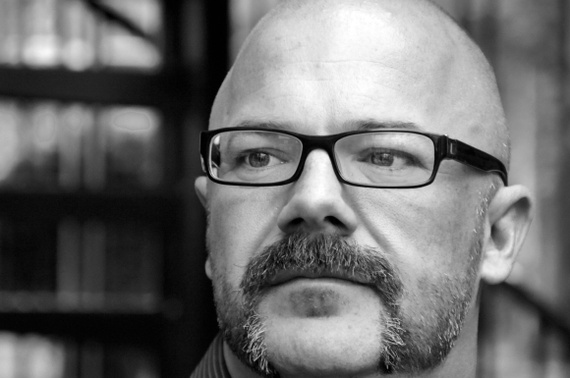
Andrew Sullivan recently announced that he’s quitting blogging. That’s a big deal, especially if you were around in the early 2000s when blogging got started. (I once asked Megan McArdle about becoming a professional writer after reading The Up Side of Down[ref]Which is incredible. The subtitle is “Why Failing Well is the Key to Success.” You should buy it.). She told me that the only shortcut she knew of was to start a blog in 2001. Oh well.)
I wasn’t around and blogging until 2006, when I launched my first (now abandoned) blog at Blogspot, so I’ve only come across Sullivan more recently, and I respect and admire him more for his political views (e.g. here) than as the god father of blogging. But I’ve read with interest the reaction of other elite bloggers to his news, like this Vox piece by Ezra Klein: What Andrew Sullivan’s exit says about the future of blogging.
Klein’s basic premise is that blogging is hard to scale. To some extent, this doesn’t matter to me very much. Klein notes that Sullivan “was trying to make his blog — and its sizable audience — into a business.” I, at Difficult Run, am not. I’d like to pay for hosting, but I have no interest in profiting substantially from DR. But Klein’s observation about why it’s hard to scale a blog is important to what we’re trying to do at DR. Basically, blogging is the antithesis of social networking:
Blogging is a conversation, and conversations don’t go viral… Blogging encourages interjections into conversations, and it thrives off of familiarity. Social media encourages content that can travel all on its own. Alyssa Rosenberg put it well at the Washington Post. “I no longer write with the expectation that you all are going to read every post and pick up on every twist and turn in my thinking. Instead, each piece feels like it has to stand alone, with a thesis, supporting paragraphs and a clear conclusion.”
My thoughts: some of this is about the low quality of blogs back when there was no competition. You could afford to assume your readers would do background reading on you because there weren’t many bloggers to compete with. This is also why Klein talks about how in the good ole days blogging was “unedited,” which is basically a polite way of saying poor quality, I think. The connection between having a more direct, personal tone and editing is just not that strong. You can edit and still sound like a blogger: casual, informal, and with a distinctive style. I’m not impressed by that.
But when it comes to social media: I absolutely agree that blogging is hard to scale. It’s long-form writing. Social networking is about memes. And I don’t mean the technical term, I mean annotated cat GIFs. Social networking is also about tribalism, echo-chambers, and outrage. Sure, there’s a lot of that in blogs too, but in a blog you have time for nuance if you want to. In a meme? Not so much.
If we’re going to realize the potential of the Internet, we’re gonna need writers who are willing to write with some depth and readers who are interested in reading it. That’s what we’re trying to do here. Slowly but surely, we’re committed to carving out a little space where important social and economic and technological and religious ideas get discussed at greater length (and with greater context and civility) than outlets like Twitter or Facebook tend to foster. The reasons Klein thinks blogs are on the ropes, in short, are precisely some of the reasons I’m committed to staying the course.
Which, btw, is not at all a dig at Sullivan. I’m not sure Klein’s analysis was really correct. I think Sullivan’s business was largely successful and take him at his word that his real reason for hanging up his hat is to unplug and get back into the real world. That I can understand.
I can’t respect Sullivan’s politics at all. He once argued that Bush invaded Iraq in order to distract the USA from gay marriage, and most bizarre of all, he spent way too much time arguing that Trig Palin was really Sarah Palin’s grandson and the whole pregnancy was faked.
There are some positions so bizarre, when someone espouses them and defends them over and over, it makes it very hard for me to take them seriously on any other topic.
Yikes, Ivan. I didn’t know he’s espoused such oddball notions. Well, consider me less a fan of his than I was before. Sheesh.
I still do appreciate his voice for tolerance and moderation on the gay marriage front, however. Not sure if you read it, but here’s the article I linked to from my original post: http://dish.andrewsullivan.com/2014/04/03/the-hounding-of-brendan-eich/
If you want to go down the crazy rabbit hole, you can start here (where he merely offers the Trig birther hypothesis “it’s also possible that she never had that baby at all” as a possibility)
http://dish.andrewsullivan.com/2011/06/13/the-day-trig-was-born/
He only gets worse from there.
“All I have done is ask for evidence that Sarah Palin is the biological mother, evidence that must be easily available and definitive.”
http://dish.andrewsullivan.com/2011/04/12/a-paper-on-the-press-and-trig/
(there are dozens of posts he dedicated to this bizarre topic).
Though he eventually tried to back off a bit:
“I took great pains never to state that and merely to ask Palin, given her insane story about the birth of her child, to provide some evidence for it, which she said she would but never did.”
http://dish.andrewsullivan.com/2012/01/17/how-scared-is-fox/
Though he’s being disingenuous on that last claim.
http://pjmedia.com/tatler/2012/01/18/our-long-national-nightmare-is-over-andrew-sullivan-tries-to-back-off-his-trig-trutherism/